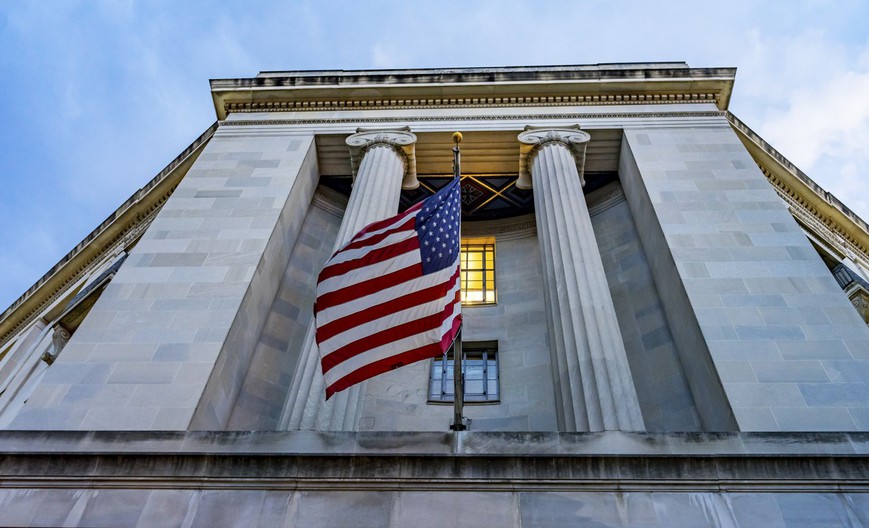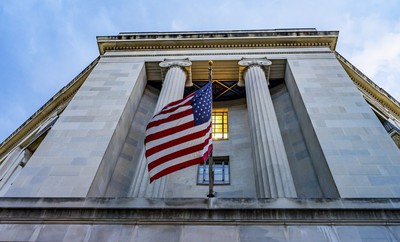

Finality is needed so the industry may confidently invest in new products and features without fear of criminal prosecution.
Attorneys general from 25 states and the District of Columbia have written a letter to the DOJ asking the agency to clarify its position on the federal Wire Act, after it declined to appeal an appellate court ruling that the law only applies to sports betting.
In a six-page letter to US Attorney General Merrick Garland and his deputy, Lisa Monaco, the states and DC urged the Biden DOJ to disavow a Trump-era reversal that claimed the Wire Act applies to all manner of potential interstate gambling, not just sports betting.
Specifically, the AGs want the DOJ to issue a memorandum formally rescinding an earlier memo from 2019 that rendered an Office of Legal Counsel (OLC) opinion from 2018 as the agency’s official position on the matter.
Under the 2018 OLC opinion, the Wire Act would have a wider scope and render forms of interstate gambling, such as online poker, illegal.
The AGs asked the DOJ to formally endorse the January 20 decision by the First Circuit Court of Appeals. The appellate court upheld a lower court ruling that the Wire Act applies “only to sports betting.” The AGs also want the DOJ to issue another OLC opinion formally rescinding the previous one from 2018.
States and Industry “need to understand what their rights are”
By taking the above actions, the DOJ would return to the position it took between 2011 and 2018, when the agency held that the Wire Act’s prohibitions on bets, wagers or related matters applied only to sports betting.
But the AGs made clear that clarification from the DOJ is essential for states, which for years have invested resources in creating infrastructure to support lotteries and online gaming.
Internet gaming has for years been, and remains, an essential industry here, one the DOJ viewed since 2011 as perfectly legal until its baseless backtracking in 2018
Since the appellate court’s ruling in New Hampshire Lottery Commission et al. v. Rosen applies only to the specific parties in that case and is binding only in the territory covered by the First Circuit, the AGs said additional clarification is necessary—lest the DOJ revisit the issue in the future and impose new restrictions in other parts of the country or use another vehicle, such as online poker, to achieve that end.
“States and industry participants need to understand what their rights are under the law without having to file suit in every federal circuit,” the AGs wrote in the letter, which was dated June 18. “Finality is needed so the industry may confidently invest in new products and features without fear of criminal prosecution.”
The letter was spearheaded by Michigan AG Dana Nessel and Ohio AG Dave Yost.
In a separate statement, New Jersey AG Gurbir Grewal said his state’s legal gambling industry, as well as state services and programs supported by gaming revenue and tax dollars, “would have been devastated in 2020 without online gaming”.
“Internet gaming has for years been, and remains, an essential industry here, one the DOJ viewed since 2011 as perfectly legal until its baseless backtracking in 2018,” he added.
A Letter Sixty Years in the Making
The Wire Act was enacted in 1961 as part of an initiative targeting organized crime, which relied on interstate bookmaking as a source of revenue at the time.
The DOJ’s decision to not seek Supreme Court review … signifies that confusion around the interpretation of the Wire Act may be a thing of the past
The DOJ held the position that the Wire Act applied only to sports betting until 2002, when it advised the Nevada Gaming Control Board that it believed the Wire Act also applied to online casino gambling. Three years later, the DOJ warned the Illinois Lottery that the law also applied to the purchase of lottery tickets online.
The Feds used the Wire Act during its crackdown of online poker, aka Black Friday, in 2011. After Illinois and New York asked the Obama-era DOJ to clarify its position, the agency issued an OLC opinion in 2011 reaffirming its earlier stance that the Wire Act applied only to sports betting—effectively making online poker legal in the US for the first time.
But that changed in 2018 when the New DOJ Opinion: Wire Act Not Limited to Sports Betting Trump DOJ reversed course and widened the scope of the Wire Act to include lotteries and online gambling. The result was the filing of several lawsuits that culminated with the Jan. 20 ruling in the First Circuit.
Resolution of the Wire Act is essential to states like Michigan and Pennsylvania, which have strict rules in place before allowing interstate player pools that would boost liquidity and support online poker.
Resolution would also be a boon to smaller states like West Virginia which has legal online poker but little interest because of its small population.
Despite the uncertainty, the DOJ’s decision not to appeal the First Circuit’s ruling to the U.S. Supreme Court effectively means regulated online lotteries, poker and casino games fall under state, not federal, purview.
“The DOJ’s decision to not seek Supreme Court review … signifies that confusion around the interpretation of the Wire Act may be a thing of the past,” Jeff Ifrah, general counsel for iDEA Growth, said in a statement.
“Now states considering legalizing online gaming can enter into compacts with other states that offer legal internet gaming, and state legislatures will have the ability to create rational gaming regulations that protect consumers, grow jobs and generate tax revenues without risk of federal intervention,” Ifrah added.

